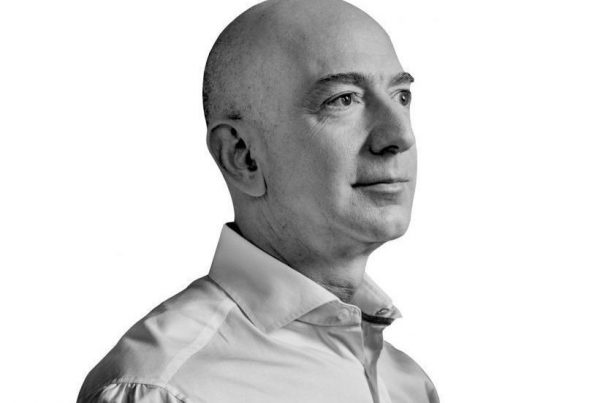The COVID-19 pandemic has been responsible for a significant drop in economic activity, meaning that with this has come a substantial decrease in overall pollution across the globe. Mandatory lockdowns and fears of exposure to the virus have halted worldwide tourism and reduced air travel by up to 70%. Further fears of exposure have also resulted in a disproportionate decline in public transit use.
While some researchers insist that these impacts will only offer temporary relief to our climate change crisis, there’s no doubt that COVID-19 has caused a monumental shift in human behaviour, followed by an indelible impact on how businesses and governments might choose to reshape their fight against climate change in the years to come.
As we inch towards vaccinating our populations at large and seeing a foreseeable end to this existential crisis, it’s clear that the pandemic has underlined the importance of being adaptable in the face of sudden and unprecedented change. Businesses can take this adaptability one step further by adopting business practices that will make them more successful in ecological, social and economic spaces.
Let’s review how, in the wake of economic upheaval, businesses can recover from COVID-19 by adopting better sustainability programmes — as well as highlight some businesses and larger initiatives that are already leading the way.
First, let’s highlight the economic pitfalls COVID-19 has caused
It should go without mentioning that COVID-19 has been one of the biggest existential threats our society has seen in the last century. By mid-2021, UK unemployment is estimated to have reached 2.6 million as a result of the extensive job loss caused by the pandemic. Younger generations have also been particularly hard-hit, with figures showing that 174,000 fewer 16 to 24-year-olds have been able to retain stable employment in 2020 (when compared to last year’s figures).
As of October 2020, a reported one quarter of UK businesses have either temporarily halted or closed their operations for reasons related to COVID-19. The sectors with the highest amount of business closures or pauses have been those in the arts, entertainment and recreation sectors — with 85% of businesses in these particular spaces ceasing operations.
Quite frankly, it’s hard to put it any other way: these numbers are disheartening.
While 2020 will always go down in history as a devastating year for millions of establishments worldwide, surviving firms must look to adopting the right recovery strategies — ones that will help them appeal to consumers in a climate that will now forever have been influenced by the virus in one way or another.

Oxford Street abandoned during government-enforced lockdown measures. Image credit @Joestubbs
What are some of the positive environmental changes COVID-19 has caused?
The disruption to normal life caused by COVID-19 has resulted in a long chain of effects on both the climate and environment. While we may not have yet fully witnessed the full scope of the pandemic’s influence on the environment, the rapid shift it has caused in everyday global behaviour has made significant impacts on the planet’s ecosystem — some of these impacts actually helping climate numbers trend in the right direction.
When lockdowns, quarantines and shutdowns were first enforced to contain COVID-19, air pollution levels steeply declined. Large cities such as New York, Beijing and Los Angeles have reported significant improvements in their air quality following the first wave of the pandemic. China, known for being one of the world’s worst-polluted countries, has seen a whopping 25% drop in emissions since the beginning of the year.
Studies conducted in the summer of 2020 measured a reduction of population-weighted concentration of nitrogen dioxide and particulate matter levels by about 60% and 31% in 34 countries. This was largely due to extreme changes to economic activity, such as reduced air travel, a dip in other transportation sector emissions and widespread lockdowns.
An initial study on emission reductions as a result of COVID-19 lockdowns also assumed a 50% reduction for energy, industry and road transport sectors.
Some feel-good stories came out of the worst of things, too.
After Italy was hard-hit with the virus in the earlier stages of the pandemic, major tourist cities were forced to undergo lockdowns and residents were forced to self-isolate, putting a sudden halt to tourism. As this thereby led to a reduced need for transportation, canals in Venice saw far less traffic and were reported to be the cleanest they had been in 60 years. The newly clear water was reported to have attracted swans, fish and other aquatic wildlife.
In a small, coastal Welsh town called Llandudno, a herd of wild Kashmiri goats were seen roaming around the empty streets during the first mandated lockdown in the spring of 2020. According to the town’s councillor, it was believed that the lack of people out-and-about had suddenly made the goats feel more comfortable venturing into the town centre.
While global lockdowns may not be a sustainable method of living when it comes to long-term metrics, these unprecedented changes in our human behaviour have proven that a pause in economic activities can significantly reduce air pollutant emissions. However, once the pandemic subsides and we adapt to a “new normal” future, how can brands continue to promote more sustainable business practices that will keep this ball rolling?
How can brands start promoting a ‘greener’ tomorrow?
While the onset of the pandemic and any subsequent lockdowns may have forced businesses to place green initiatives on the back-burner, this is a short-sighted approach that can certainly undo any progress our reduced economic activity has caused. Climate researchers are actually beginning to warn brands about the propensity for COVID-19 to hinder any climate change action from businesses. Once the pandemic subsides and we see air travel back up-and-running, experts predict that emissions will actually triple by 2050.
As such, the COVID-19 crisis may be the ideal turning point for the sustainability agenda. According to climate scientist and environmental justice activist Sarah Myhre, our recovery from the pandemic will play a vital role in how we continue to combat climate change. In her words, “there’s potential for this pandemic to become a moment of mass awakening.”
This means that the start of the new year will be a crucial time for businesses to start making social responsibility their bread and butter. In a time where consumers have begun looking to brands for increased support during these challenging times, emphasising sustainable values is a great way for companies to promote the idea of a more comfortable future while also increasing brand loyalty.
Adopting greener processes also allows businesses to experience benefits such as green tax credits, implementing circular economy principles internally, and improving overall efficiency. A reported 75% of UK businesses have reported experiencing commercial benefits after investing in green technologies.

Icecap. Image credit @USGS
In recent years, there has also been a boom in major companies embracing corporate social responsibility (CSR) programmes. According to KPMG, Fortune 500 companies spent approximately US $19 billion on CSR. More than 90% of the world’s leading companies also produce an annual report on these programmes to ensure successful outcomes.
Major brands have also started leveraging greener approaches to restructure their business models. Unilever estimates that almost 70% of its greenhouse gas footprint is dependent on the products their customers choose and whether they are used and disposed of in an ethical and sustainable manner (such as conserving water and energy while doing laundry or properly recycling any containers after use).
Proctor & Gamble has also reported finding substantial success by investing in green technologies (such as reducing greenhouse gas emissions by 30% and reducing the amount of truck kilometres per unit of production by 20%). They have saved almost US $2 billion in waste and energy savings since 2007.
How can big brands work with partnerships or global leaders to achieve a more sustainable approach?
Governments have also started investigating which changes are most likely to encourage changes in consumer behaviour. In the UK, a Behavioural Insights Team (also known as the Nudge Unit) observes behavioural economics and then uses this data to inform public policy.
Across the pond, major US institutions such as Yale and George Mason University have also begun making detailed observations on groups of people, based on their climate awareness and likelihood to adopt more sustainable behaviour.
How can striving for B Corp accreditation further help brands build a more eco-friendly platform?
In today’s world, more and more companies are gaining B Corp accreditation.
B corporations can be defined as “businesses that meet the highest standards of verified social and environmental performance, public transparency and legal accountability to balance profit and purpose”. Furthermore, they are “accelerating a global culture shift to redefine success in business and build a more inclusive and sustainable economy.”
To receive this certification, businesses that become B Corp-accredited undergo a rigorous process to evidence their focus on being socially and environmentally responsible.
As such, becoming a B Corp requires brands to demonstrate in filings that they are committed to being sustainable and socially conscious. This can help them attract the right employees, consumers and investors who are engaged in issues related to sustainability and greener initiatives. Studies allege that businesses with engaged workforces are 22% more profitable and twice as likely to succeed.

Patagonia Clothing is famed for its good working practices and B Corp certification. Image credit @SupplyChainBrain
Final Thoughts
The COVID-19 outbreak has disrupted the way that business is done in just about every industry across every continent, forcing boardrooms and leaders from coast to coast to adapt to unprecedented change. As concerns about safety and efficacy have been brought to the fore, it makes perfect sense that business cases for better social, and environmental practices are being linked with better outcomes on the other side of the pandemic.
At the end of the curve, businesses that employ more sustainable business values (and focus on topics such as climate change and human rights) will also be most likely to succeed. 62% of executives believe that a proper sustainability strategy is necessary to be competitive and achieve long-term value.
In all, increased focus on greener initiatives should be top-of-mind for brands as they plan for the nearing of our post-COVID future. The time to act is now.







Recent Comments